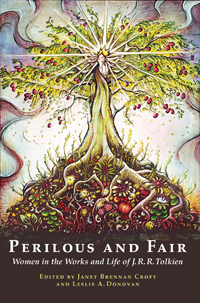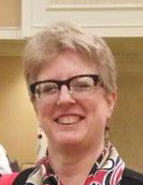We co-sponsored another great session today at Kalamazoo. My thanks to our chair, my fellow presenters, and our audience (both on-site and in Zoom).
More than The Green Knight: Exploring the Ongoing Tradition of Adapting and Appropriating Sir Gawain and the Green Knight (Hybrid)
60th International Congress on Medieval Studies
Western Michigan University (Kalamazoo, MI)
Session 247 (Sangren Hall 1320): Friday, 9 May, from 3:30-5:00 PM EDT
Principal Sponsoring Organization:
Association for the Advancement of Scholarship and Teaching of the Medieval in Popular Culture
Co-Sponsoring Organization(s):
International Arthurian Society, North American Branch (IAS/NAB), International Pearl-Poet Society
Organizers: Michael A. Torregrossa, Bristol Community College; Joseph M. Sullivan, Univ. of Oklahoma; Amber Dunai, Texas A&M Univ.–Central Texas
Presider: Amber Dunai, Texas A&M Univ.–Central Texas
There Are Many Ways to the Green Chapel: Creating a Resource Guide to Adaptations of Sir Gawain and the Green Knight (Virtual)
Michael A. Torregrossa, Bristol Community College
Michael A. Torregrossa (he/him/his) is a graduate of the Medieval Studies program at the University of Connecticut (Storrs) and works as an adjunct instructor of writing and literature courses in both Rhode Island and Massachusetts. His research focuses on popular culture’s adaptation, appropriation, and transformation of literary classics, including the Arthurian legends. In addition to these pursuits, Michael is the founder of The Alliance for the Promotion of Research on the Matter of Britain (2000-) and The Association for the Advancement of Scholarship and Teaching of the Medieval in Popular Culture (2004-). He also serves as editor for these organizations' various blogs and as moderator of their discussion lists and leads the development of their conference activities. Besides this work, Michael is active in the Northeast Popular Culture/American Culture Association (a.k.a. NEPCA) and organizes sessions for their annual conference in the fall. Since 2019, Michael has been NEPCA’s Monsters and the Monstrous Area Chair, but he previously served as its Fantastic (Fantasy, Science Fiction, and Horror) Area Chair, a position he held from 2009-2018.
Not a Knight, but a Turtle: Looking at Children’s Media and Medievalism through Franklin and the Green Knight (Virtual)
Sam Lehman, Memorial University of Newfoundland
Sam Lehman is a PhD Candidate who studies Arthurian literature and popular culture on the Avalon Peninsula in Newfoundland, Canada; her thesis project looks at women and trauma in The Mists of Avalon and Le Morte Darthur.
“Finn is totally getting played:” Carnival Games and Imbalanced Knowledge in Adventure Time’s Adaptation of Sir Gawain and the Green Knight
Prudence J. Ross, Brown Univ
Prudence Ross is a PhD candidate at Brown University in the Department of English. Their work is focused on considering the ways in which poetry, affect, and memory relate to and produce one another in early modern and medieval texts. Prudence’s dissertation project, entitled Poetic Joinery: Remembering the Passion in Early Modern Poetry, examines how the image of the joint in its various contexts – bodily, architectural, and mechanical - are employed in devotional poetry towards establishing a deeply felt readerly memory of the Crucifixion.
In His Own Time, On His Own Terms: Neuroqueer Medievalisms in Jes Battis’s The Winter Knight (Virtual)
Miles Smith, Fordham University
Miles Smith is a PhD candidate in English at Fordham University. Their dissertation project focuses on rhetoric and nonnormative bodyminds in late medieval literature, with a particular emphasis on gender, animality, and disability. They use they/them pronouns.


